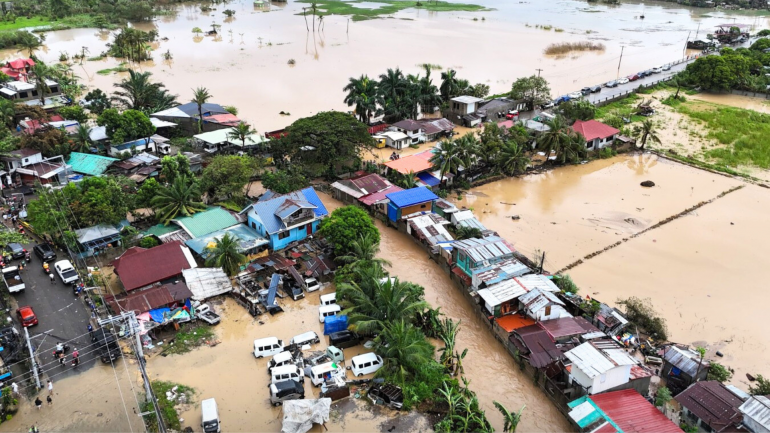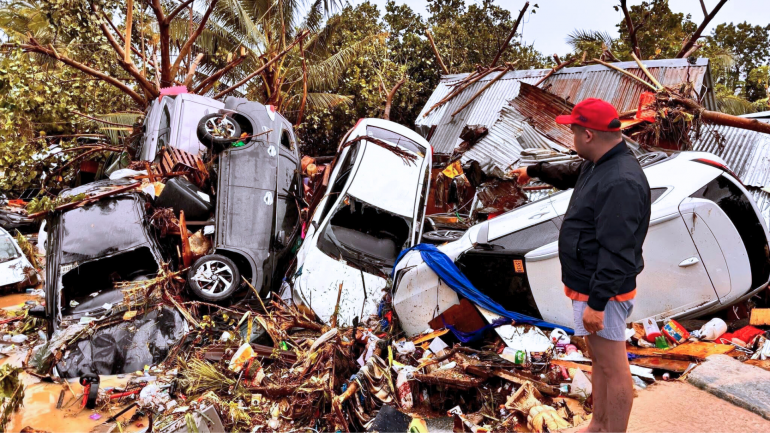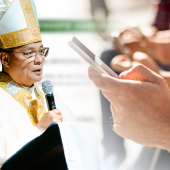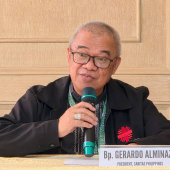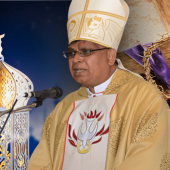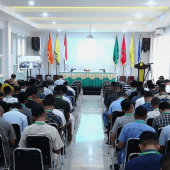Cebu Prelate: Severe Flooding “A Call to Repentance and Renewal”
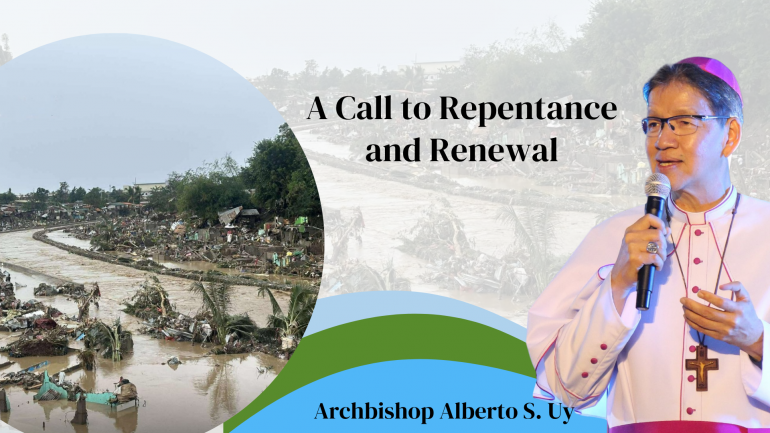
A day after Tropical Storm Tino barreled through the Philippines’ central and eastern regions with heavy rainfall and strong winds of not less than 150 kilometers per hour, the Cebu archbishop has called for repentance and renewal.
In a statement on November 5, 2025, Cebu Archbishop Alberto S. Uy said that the severe flooding in the province of Cebu and other areas affected by Typhoon Tino is a reminder “not only of the fragility but also of the sad state of our environment. They are a reflection of what we have done, or failed to do, for our common home.”
At the time of the publication of this story, the death toll stood at 48. Some 100,000 people had been evacuated, mostly those living near shorelines and low-lying areas. In the current disaster, people in subdivisions found themselves climbing to the roofs of their houses to escape the severe flooding. Meanwhile, their cars below could be seen piling on top of one another after being hurled by heavy rain and strong winds.
Typhoon Tino is the 20th typhoon to hit the Philippines this year. While Filipinos are accustomed to weather disturbances, the storm surges caused by recent typhoons may have pushed their patience to the limit because of reported government corruption in flood control projects involving billions of pesos. Prominent politicians, public works officials, and favored contractors are said to have pocketed the funds.
“When public funds are stolen or misused, it is not only money that is lost, it is the trust of the people, the safety of families, and the dignity of the poor,” Archbishop Uy said.
“Such corruption is not only a civic failure; it is a grave moral offense against both God and humanity. These questionable ‘flood control projects’ mock the cries of the poor who suffer most during disasters. They betray our call to stewardship and solidarity.”
“God speaks through the wind and the waters. He calls us to repentance and renewal. He invites us to rediscover our responsibility as stewards, not exploiters.”
He urged the faithful to demand honesty and accountability from those who serve the public.
“Let these floods awaken in us a deeper ecological and moral conversion. Let them remind us that caring for the environment and promoting integrity in governance are both acts of faith, justice, and love.”
Before the storm struck, Archbishop Uy instructed the diocesan clergy to open parish churches to people seeking shelter from the storm. He clarified, however, that churches damaged by the recent 6.9 magnitude earthquake that struck northern Cebu on September 30 remain closed to the public.
Radio Veritas Asia (RVA), a media platform of the Catholic Church, aims to share Christ. RVA started in 1969 as a continental Catholic radio station to serve Asian countries in their respective local language, thus earning the tag “the Voice of Asian Christianity.” Responding to the emerging context, RVA embraced media platforms to connect with the global Asian audience via its 21 language websites and various social media platforms.





